Five legal issues every author should be aware of
Publishing a book is not just about coming up with a story line and writing a great story, there are more dimensions to this. There is an important domain that needs to be kept in mind while deciding to write a book- Legal issues. You might either go in for traditional publishing or self-publishing, as the author and the owner of the content, the onus is on you to make sure that there are no legal pitfalls. A legal case is not only never-ending, but also very damaging. A single legal case can be a huge turn off to an author, as it is a matter of credibility. The author and her/his book is seen as a brand and the damage that a legal case can cause to the brand name is something that needs no explanation. Especially, in India, where there is not much awareness about the legal procedures with respect to the publishing industry, it is important to be aware of a few important laws. From the conception of the idea to the post-release marketing, there are a lot of legal procedures that must be adhered to. We have put together a list of five legal issues every author should be aware of, as it is always better to be safe, than sorry!
- Copyright issues
The basic copyright law states that if you create a piece of work , it is yours. Copyright is a legal right given to any creator. It could be creators of literary, dramatic, musical and artistic works and producers of cinematograph films and sound recordings. For authors, it is an intellectual property right that protects their writing and character. You will find that almost all books carry a message that reads, No part of the publication can be reproduced in any material form without the written permission of the copyright holder. So as an author, you cannot copy someone else’s work. This law is basically designed to protect an individual’s work. What you need to know about copyrights registration, read our blog post here.
Having said that, under Fair Use some copy right protected material can be used without permission. There are no hard and fast rules about the number of lines or words you can use without permission.
The term fair dealing is not included in the Act. There is a thin line between fair and infringement and authors need to be careful about it. The fair nature of the dealing depends on the following four factors:
- Purpose of use
- Amount of work used
- Effect of the use of work on original
- Nature of work
As an author, apart from text, you may add images and infographic as well. Just like the text, copyrighted images also cannot be used in your book.
Just like how you cannot use copyrighted work, it is wise to protect your own work as well, so that someone else does not stake a claim at it. Having a copyright can ensure no one else can claim your work as theirs and make a profit out of it.
Copyright covers any original expression. An author, by default, can gain rights over his or her book. As per law, copyright is automatic; however, if you want proof that you are the owner of the work, it is better to apply for a copyright certificate. You can apply for the certificate online here. By entering your basic information
Copyright is governed by the Copyright Act of 1957.
Duration of copyright protection under the Act
| Literarydramatic,musical andartistic works | Lifetime of the author + sixty years from the beginning of the calendar year next following the year in which the author dies. |
| Anonymous and pseudonymous worksPosthumous workCinematograph filmsSound records
Government work Public undertakings International Agencies Photographs |
until sixty years[8] from the beginning of the calendar years next following the year in which the work is first published |
- Use of brand names and trademarks
Most often, writers have this question of whether or not they can use brand names in their books. The answer to that question is tricky. While it is fine to mention names, writers need to be aware of trademark infringement, trademark dilution, and trademark tarnishment. Merely using a brand name will not get authors into trouble. If that was the case then, popular novels like Glamorama by Bret Easton Ellis and David Foster Wallace Infinite Jest would have never seen the light of day.
However, in certain cases, brands have trademark that they want to protect. For example, the Xerox Corporation doesn’t like writer using Xeroxing or a term and Google doesn’t like writers using googling.
Another thing writers need to be aware of is using a brand name in a negative light. Brand tarnishing, as it is called, can be a tricky thing. While it is OK to mention a brand name, it is not allowed to use brand names, company names, logos and other trademarked slogans and phrases in the title of your book.
- Defamation
Any statement that hurts the reputation of a person can be referred to as defamation. According to Section 499 of the IPC, defamation is committed:
- Through: (i) words (spoken or intended to be read), (ii) signs, or (iii) visible representations;
- Which: are a published or spoken imputation concerning any person;
- If the imputation is spoken or published by: (i) the intention of causing harm to the reputation of the person to whom it pertains, or (ii) knowledge or reason to believe that the imputation will harm the reputation of the person to whom it pertains will be harmed.
Authors need to be extremely careful while portraying characters, especially public figures, as they can be sued for Libel. It is the duty of the author to check facts and prove that the statements they are making are true if required.
- Plagiarism
Plagiarism is one of the most severe violations that any author can commit. It is essentially stealing and publishing another author’s work, language, thoughts, work, ideas and expressions as yours. Plagiarism falls under copyright infringement and is a punishable crime. It can also ruin the reputation of an author. Any writer needs to be extremely careful about plagiarism. Take the example of author Kaavya Viswanathan, a Harvard student who had stuck a big book deal, rumored to be worth $1 million. Her first work How Opal Mehta Got Kissed, Got Wild, and Got a Life had also just climbed ot 32 on the New York Times bestseller list. She had written the book just after she graduated from high school. Unfortunately, the book had to be withdrawn after it was found that parts of it had been plagiarized from several sources including from the works of Salman Rushdie and Meg Cabot. Her publisher was initially with her; however, the books had been ultimately recalled and destroyed by the publisher and her contract for the second book was also canceled.
Several portions were taken off Megan McCafferty’s first two Jessica Darlings novels Sloppy Firsts (2001) and Second Helpings (2003). In an interview with the New York Times, the author said that she had read both the books multiple times and that she had a photographic memory and any similarities were unintentional. “I remember by reading,” she said. “I never take notes. She added “I’ve never read a novel with an Indian-American protagonist … The plot points are reflections of my own experience. I’m an Indian-American.”
Sample passages from both works:
| McCafferty’s Sloppy Firsts and Second Helpings | Viswanathan’s Opal Mehta |
| Sloppy First, page 7: “Bridget is my age and lives across the street. For the first twelve years of my life, these qualifications were all I needed in a best friend. But that was before Bridget’s braces came off and her boyfriend Burke got on, before Hope and I met in our seventh grade Honors classes.” | page 14: “Priscilla was my age and lived two blocks away. For the first fifteen years of my life, those were the only qualifications I needed in a best friend. We had bonded over our mutual fascination with the abacus in a playgroup for gifted kids. But that was before freshman year, when Priscilla’s glasses came off, and the first in a long string of boyfriends got on.” |
| Sloppy Firsts, page 6: Sabrina was the brainy Angel. Yet another example of how every girl had to be one or the other: Pretty or smart. Guess which one I got. You’ll see where it’s gotten me. | page 39: Moneypenny was the brainy female character. Yet another example of how every girl had to be one or the other: smart or pretty. I had long resigned myself to category one, and as long as it got me to Harvard, I was happy. Except, it hadn’t gotten me to Harvard. Clearly, it was time to switch to category two. |
| Sloppy Firsts, page 213: “He was invading my personal space, as I had learned in Psych. class, and I instinctively sunk back into the seat. That just made him move in closer. I was practically one with the leather at this point, and unless I hopped into the backseat, there was nowhere else for me to go.” | page 175: “He was definitely invading my personal space, as I had learned in Human Evolution class last summer, and I instinctively backed up till my legs hit the chair I had been sitting in. That just made him move in closer, until the grommets in the leather embossed the backs of my knees, and he finally tilted the book toward me.” |
- Writing on controversial topics
In India, writing on controversial topics is a dangerous thing to do. There is a big chance of the book getting banned in India or a certain parts of India. Books are banned for various reasons including being deemed too be harmful to the nation’s honor. India is a democracy that practices freedom of expression and Article 19 of the UDHR and ICCPR also endorses it. However, every government has the right to prohibit certain types of expression. Plenty of books and authors have fallen prey to this. Here are some of the most famous authors, whose books got banned in India.
- THE SATANIC VERSES BY SALMAN RUSHDIE
Salman Rushdie rose to fame with his book Midnight’s Children, which won the Booker prize. However, his next book, The Satanic Verses did not get the same treatment. The book was widely criticized by the Islamic community worldwide. He was accused of blasphemy and the chief ayatollah of Iran even issued a fatwa against him. The book allegedly insults the legendary Prophet Muhammad and earned the hatred of the entire community. Not only was the book banned but Rushdie also had to move underground for nine years and kept changing his whereabouts.
- THE RAMAYANA AS TOLD BY AUBREY MENEN
The talented and creative writer Aubrey Menen attempted to write a light hearted and funny version of the Indian mythological epic Ramayana. Traditional and conservative Hindus were deeply offended and the book was ultimately banned in the country.
- MOTHER INDIA BY KATHERINE MAYO
Mother India was criticized heavily by Indians all over the world as the author attacked the Indian society at large, particularly the Hindus. She also attacked Indian politics, unjust treatment of women, Dalits and animals in India. She also blamed the Indian men’s sexuality being the reason for all social problems. Frowned by most Indians, the book was banned.
Mistakes can be lethal in this fast paced industry. If you are not well versed with the local and international laws, then there is a chance of unwittingly finding yourself on the wrong end of one of these laws.You don’t have to take a crash course and become a lawyer overnight, but having a fair idea of a few legal topics will help you avoid potential liability.


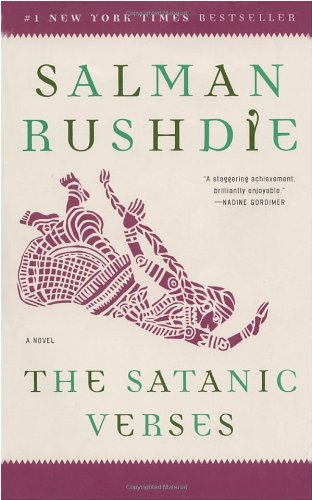
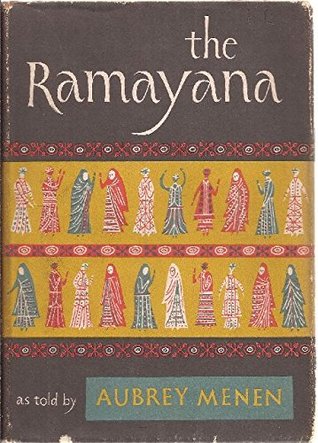
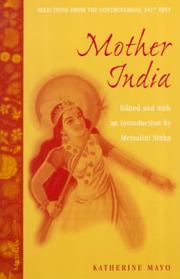

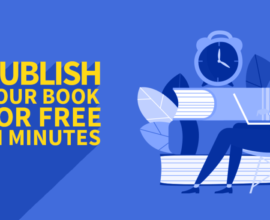
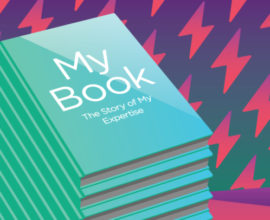

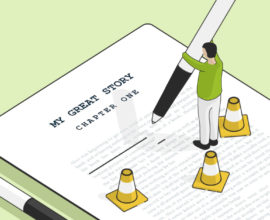
Pingback: The Guide to understanding and avoiding Plagiarism | Publishing Blog in India()